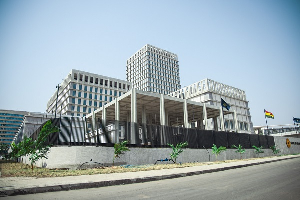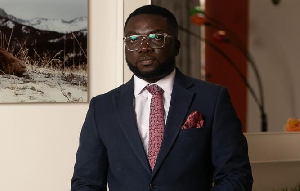Accra, Jan. 30, GNA - Thirty-one Superior Courts have been automated at the cost of more than 1.8 million dollars under the World Bank Judicial / Legal Sector Reform Programme, Chief Justice George Kingsley Acquah said on Friday.
They include two Supreme Courtrooms, the Court of Appeal and six High Courts in Accra. Kumasi has six High Courts automated. Cape Coast and Koforidua have three each; Tema, Ho, Sunyani and Tamale have two each while Bolgatanga and Wa have one High Courtroom each automated.
Chief Justice Acquah announced this at the first graduation ceremony of 18 Stenotype Court Reporters, who underwent an 18-month training course in Accra, sponsored by the World Bank.
He said in addition, the Supreme Court Library has also been refurbished to enable electronic library equipment to be installed. The Government of Japan, Mr Justice Acquah said, had also provided resources for the training of 33 Judges and more than 100 members staff that are operating the Automated Courts in Computer Appreciation and Case Management Application.
He announced that the Danish Government was currently refurbishing and automating six Magistrate's courts in the Northern Regions while six automated commercial court complex was also being built in Accra. "USAID has also pledged to automate five Magistrate's courts in the Southern Sector."
Mr Justice Acquah noted that there had been a number of legitimate complaints of delays in the production of transcripts from the courts and attributed them to lack of qualified court reporters to transcribe and produce authentic transcripts of proceedings of the automated courts.
"If the automated courts are to be effective and fulfil the objectives of expediting and rendering transparent, the adjudication of cases, then it is important that proceedings of those court must be correctly and promptly produced."
He recounted the important role Stenotype Court Reporters played in the court automation process and called for more funds to train more personnel.
The CJ announced the promotion of the graduands to their next grades for completing the course.
He commended donors for their immense support towards the development of the Judicial Service but called for more assistance. Mr Justice S.A Brobbey, a Supreme Court Judge and the Chairman of the Institute of Judicial Continuing Education, said the Service had over the years tried a number of methods in the production of proceedings but none of them had worked.
He mentioned long hand writing in the courts, the use of tape recorders, and voice automation but "all these did not yield any fruitful results".
He stated that the introduction of the stenographic machines had assisted the courts to produce accurate proceedings.
Ms Gloria Akuffo, Deputy Attorney-General, noted that manpower development in the country had been a nightmare in most organizations and urged the graduands to attach seriousness to their work.
Mr Randell Czerenda, the Course Consultant from Stenograph Corporation of Chicago USA, said the major role of the Judiciary was to ensure the rule of law in the country, adding that the graduates had an important part to play as they were expected to produce proceedings accurately.
General News of Friday, 30 January 2004
Source: GNA












